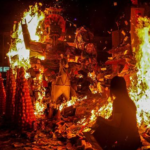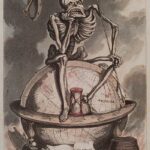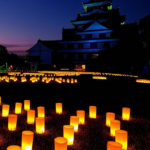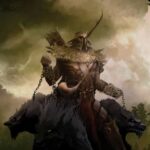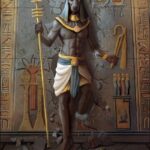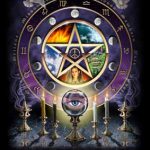Diwali or Divali is a festival of lights and is one of the major festivals celebrated by Hindus, Jains, and Sikhs. The festival usually lasts five days, or six in some regions of India, and is celebrated during the Hindu solar month Kartika (between mid-October and mid-November), the height of which is celebrated on the third day coinciding with the darkest night of the lunar month. Diwali is also a major cultural event for the Hindu, Sikh, and Jain diaspora.
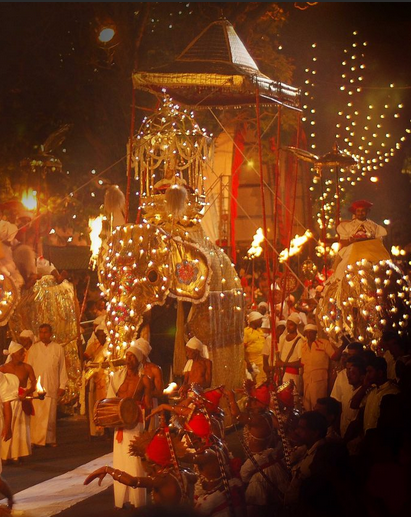
The festival represents the same symbolic victory of light over darkness, knowledge over ignorance, and good over evil and is widely associated with Lakshmi, goddess of prosperity and Ganesha, god of wisdom and the remover of obstacles, while many other regional traditions connect the event to Sita and Rama, Vishnu, Krishna, Durga, Shiva, Kali, Hanuman, Yama, Dhanvantari, or Vishvakarman.
Customs
In the lead-up to Deepavali, celebrants prepare by cleaning, renovating, and decorating their homes and workplaces with diyas (oil lamps), rangolis (colorful art circle patterns), and other parts of the house with jhalars.
During the festival, Hindus, Jains and Sikhs illuminate their homes, temples and work spaces with diyas, candles and lanterns. Hindus, in particular, have a ritual oil bath at dawn on each day of the festival. During Diwali, people wear their finest clothes, illuminate the interior and exterior of their homes, perform worship ceremonies of Lakshmi, the goddess of prosperity and wealth, light fireworks, and partake in family feasts, where mithai (sweets) and gifts are shared.
Many towns organize community parades and fairs with parades or music and dance performances in parks. Some Hindus, Jains and Sikhs will send Diwali greeting cards to family near and far during the festive season, occasionally with boxes of Indian confectionery.
Origin
The term is derived from the Sanskrit words dīpa, “lamp, light, lantern, candle, that which glows, shines, illuminates or knowledge” and āvali, “a row, range, continuous line, series”.
Many Hindus associate the festival with Goddess Lakshmi, the goddess of wealth and prosperity, and wife of Vishnu.
The start of the 5-day Diwali festival is stated in some popular contemporary sources as the day Goddess Lakshmi was born from Samudra manthan, the churning of the cosmic ocean of milk by the Devas (gods) and the Asuras (demons), while the night of Diwali is when Lakshmi chose and wed Vishnu.
Along with Lakshmi, who is representative of Vaishnavism, Ganesha, the elephant-headed son of Parvati and Shiva of Shaivism tradition, is remembered as one who symbolizes ethical beginnings and the remover of obstacles. Hindus of eastern India associate the festival with the Goddess Kali, who also symbolizes the victory of good over evil.
Hindus from the Braj region in northern India, parts of Assam, as well as southern Tamil and Telugu communities follow another popular tradition. In the Dvapara Yuga period, Krishna, an avatar of Vishnu, killed the demon Narakasura, who was the evil king of Pragjyotishapura, near present-day Assam, and released 16000 girls held captive by Narakasura. Diwali was celebrated as a signifier of triumph of good over evil after Krishna’s Victory over Narakasura. The day before Diwali is remembered as Naraka Chaturdasi, the day on which Narakasura was killed by Krishna.
Yet another tradition links the festival to legends in the Hindu epic Ramayana, where Diwali is the day Rama, Sita, Lakshman and Hanuman reached Ayodhya after a period of 14 years in exile after Rama’s army of good defeated demon king Ravana’s army of evil.
Some other faiths in India also celebrate their respective festivals alongside Diwali. The Jains observe their own Diwali which marks the final liberation of Mahavira, the Sikhs celebrate Bandi Chhor Divas to mark the release of Guru Hargobind from a Mughal prison, while Newar Buddhists, unlike other Buddhists, celebrate Diwali by worshiping Lakshmi, while the Hindus of Eastern India and Bangladesh generally celebrate Diwali by worshiping the goddess Kali.

